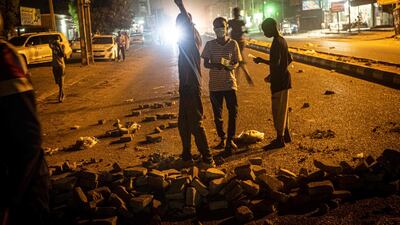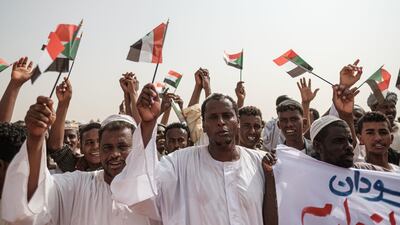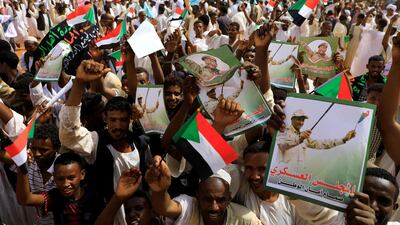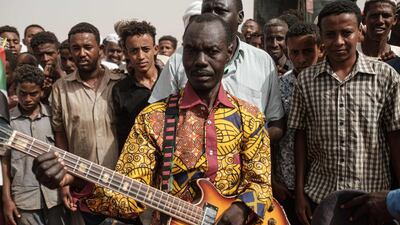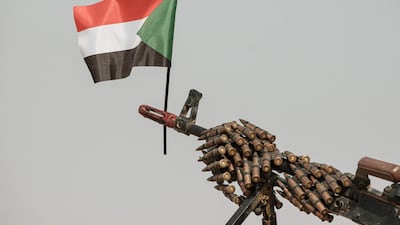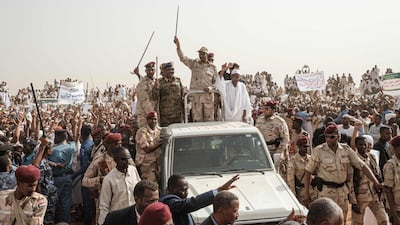Sudan's protest leaders have accepted an Ethiopian plan to resume talks with Khartoum’s ruling generals over a transitional government.
But the silence of the military's top brass on the proposals and comments by a powerful general suggest that an agreement will remain elusive, at least in the near term.
Talks between the protest leaders and the generals, who removed authoritarian leader Omar Al Bashir, collapsed on June 3 when security forces dispersed a sit-in protest outside the armed forces' headquarters in the capital.
A doctors committee linked to the protesters says at least 100 people were killed. Authorities say 61 died.
Authorities have since cut internet service, denying protesters the vital communication tool they had used during four months of street protests against Mr Al Bashir's rule, which culminated in his removal in April.
The ruling transitional military council has acknowledged it was behind the cut, claiming that social media networks posed a threat to national security.
On Sunday, a Sudanese lawyer said he had won a court ruling ordering authorities to restore internet services, but it was not immediately clear whether the ruling generals would comply with the ruling or appeal against it.
Talks between the generals and protest leaders – who are grouped in an umbrella of political parties and trade unions called the Forces of Freedom and Change – began shortly after Mr Al Bashir's removal.
But discussions stagnated for weeks over the composition and leadership of a "sovereign council" proposed to act as a collective presidency.
The generals insist that they must lead and make up the majority of the council's seats, something that the protest leaders reject.
The protest leaders announced late on Saturday that they accepted the Ethiopian proposal, in which they and the military each have seven seats on the sovereign council and that a 15th member be a civilian figure agreed on by both sides.
The council will have a rotating presidency, they said.
The generals have yet to say where they stand on the Ethiopian proposals, although growing signs suggest they would either reject them outright or procrastinate, a course of action that is certain to attract the anger of the African Union.
The bloc had already suspended Khartoum's membership over the military's failure to hand over power to a civilian-led government.
Since the raid on the sit-in, protest leaders have responded with two general strikes that have brought much of the country to a halt.
Recently, they have used telephone text messages to organise nighttime protests to pressure the generals to hand over power.
Lt Gen Mohamed Dagalo, the military council’s deputy chairman, has taken a tough stance in negotiations and has threatened that the council will name a transitional government and call for elections within a year.
The general has previously accused the protest leaders of being foreign agents and questioned the extent of support they have among Sudan's 40 million people.
He repeated some of these claims in an address he gave in eastern Sudan over the weekend.
Backing the military is the Rapid Support Forces (RSF), a paramilitary force whose genesis lie in a tribal militia blamed for abuses in the Western Darfur region in the 2000s when it fought rebels on behalf of Mr Al Bashir's government.
Thousands of heavily armed RSF are stationed across Khartoum.
"The status quo carries a grave risk and the potential to slide into chaos," said Hany Raslan, a prominent Sudan expert from Egypt's Al Ahram Centre for Political and Strategic Studies.
"There does not seem to be a single force that can alone take control of the situation. The potential of Sudan disintegrating is far greater than it being united."
